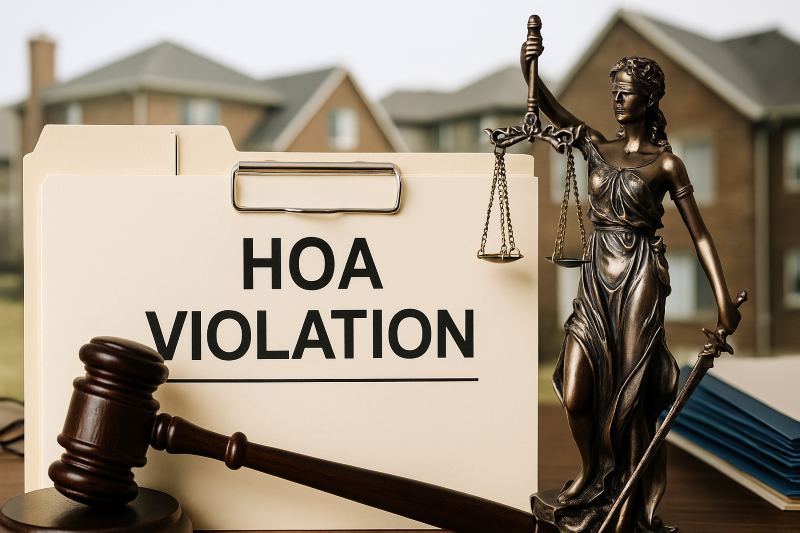
Many homeowners' associations (HOAs) are supposed to help maintain community standards and property values. But for many Texans, HOA’s represent frustration, inflated costs, and legal overreach. Homeowners often feel powerless once they enter a dispute. This post explores why HOA’s generate so much resentment and what legal frameworks make these problems so difficult to fight.
The Legal Fee Trap: When a Violation Becomes a Profit Center
A minor issue like a patio without pre-approval can quickly turn into a financial nightmare. What shocks homeowners is how fast these disputes escalate into thousands of dollars in legal fees.
Under Texas Property Code § 209.008, HOA’s are permitted to recover “reasonable costs” including attorney's fees when enforcing deed restrictions. The term reasonable is important, but in practice, HOA’s often determine what that means.
HOA attorneys frequently bill for tasks like file reviews or template notices. These may seem minor, but they add up fast. Homeowners then learn they cannot simply pay the original fine. They must also pay the full legal bill to resolve the issue.
You Can Fight It, But at What Cost?
Taking legal action against an HOA is possible, but not easy. Many attorneys are willing to fight excessive fees, but the cost can be higher than the fees themselves. Litigation often begins with a $5,000 retainer, and final costs can reach $10,000 or more.
In one case discussed on the Weekly Docket podcast, a homeowner faced a $1,400 fee for a patio issue. After legal costs were added, the HOA demanded over $9,000. Challenging this could succeed, but it requires a serious financial commitment and no guarantee of winning.
The Approval Process Trap
Another common HOA issue involves property modifications. Building a patio, adding a fence, or installing a pool often requires written approval. Skipping this step, even accidentally, can lead to fines.
In a notable case, a homeowner had received approval for a pool. Later, the HOA tried to revoke the approval and demanded the pool be removed. These scenarios highlight the amount of control HOA’s can exercise, even over actions that were originally greenlit.
Why It Feels Rigged
Many homeowners feel HOAs use their authority unfairly. The process feels one-sided. Homeowners rarely win without spending significant time and money. The Texas Residential Property Owners Protection Act (Chapter 209) outlines certain protections, but these do not always help in practice.
Even when homeowners are willing to fight, the legal system is slow and expensive. Most end up paying the fees rather than dragging the conflict through court. As one lawyer put it, you cannot beat City Hall and you cannot beat HOA’s.
All information provided on Silblawfirm.com (hereinafter "website") is provided for informational purposes only, and is not intended to be used for legal advice. Users of this website should not take any actions or refrain from taking any actions based upon content or information on this website. Users of this site should contact a licensed Texas attorney for a full and complete review of their legal issues.
